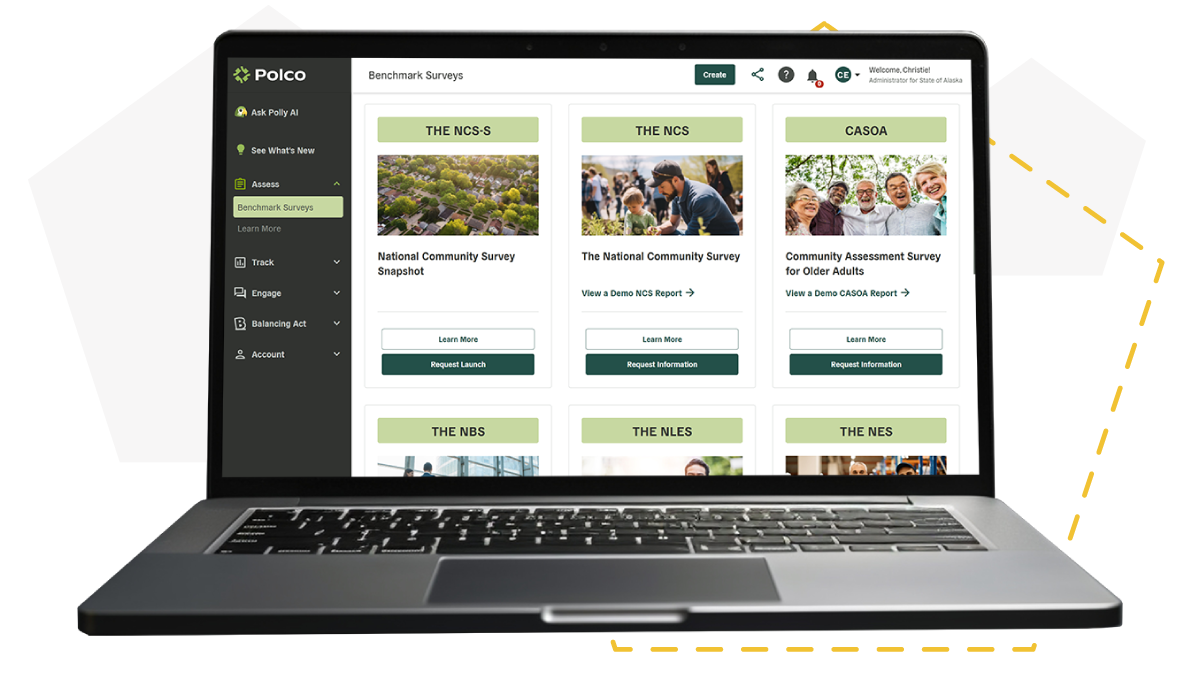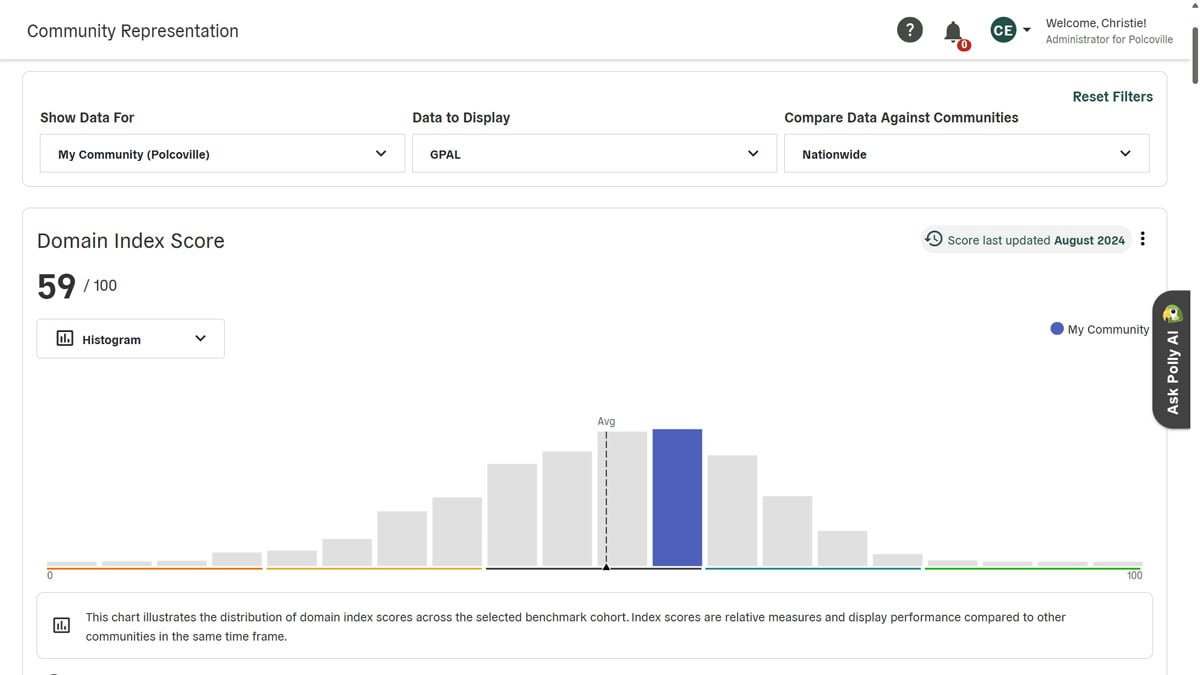All About GPAL
By Knowledge Base on September 17, 2024
Government Performance Action and Learning (GPAL) is a partnership between academic, public, and private organizations that helps local leaders make smart decisions for their communities. As the premier government performance data and action program, GPAL (pronounced JEE-pal) consolidates data from public records, private research efforts, and proprietary sources into a single comprehensive dataset. This dataset powers Polco’s Track Module and corresponding community insight dashboards.
The GPAL Partnership
GPAL collaborators span the public, academic, and private sectors. Polco’s in-house National Research Center, the University of Wisconsin-Madison’s think-and-do tank High Road Strategy Center (formerly known as COWS), and the International City/County Management Association (ICMA) pioneered this venture by rigorously assembling the nation's most comprehensive public sector data set. Other key collaborators include the performance management software company Envisio, Arizona State University, and the Hoover Institute at Stanford University.
GPAL Differentiators
Other companies and consortiums have attempted similar projects in the past, so what sets GPAL apart? GPAL’s approach to performance management is unique in a few ways.
Past initiatives have focused mainly on specific inputs or outputs as a measure of performance, which both lack meaning to residents and stakeholders and also fail to capture the true impact of a local government on its community. For example, an output may be ‘number of potholes filled’, and an input may be ‘per student expenditure’--neither of these tell us about the actual impact felt in the community. In contrast, GPAL focuses on mostly outward-facing measures or outcomes. For example, GPAL looks at data such as the actual ‘food insecurity rate’ in a community, which better indicates the positive impact that the local government has on residents’ quality of life.
Additionally, past performance management initiatives have only covered a few components of community livability, whereas GPAL encompasses all aspects of community livability. Even though a given local government may not be directly responsible for all of these things, we believe it’s important to understand how these aspects affect each other. Previous initiatives also have generally excluded the voice of residents, focusing solely on hard data (e.g., crime rates); in contrast, GPAL directly incorporates resident sentiment (e.g., residents’ perceptions of safety) into the performance management system. We strongly believe that resident perceptions are an important piece of the puzzle, so we showcase them alongside hard data points. Finally, datasets from past initiatives included only participating communities, often leading to limited comparability. Instead, GPAL incorporates available data from all communities nationwide, not just active participants and customers, for much more robust comparability.
Polco’s Background in Performance Management
Polco fits naturally into this space because we’ve always been in the field of performance management! All of our standardized benchmark surveys were designed not only to evaluate needs but also to measure performance. We created the national benchmark datasets and comparison framework to provide context for each individual community’s results, and we use rigorous survey methodology in each statistically valid survey to ensure comparability across communities and years. The founders of National Research Center (Polco’s in-house research arm) literally wrote the books on resident surveys for ICMA in 1991, 2001, and 2010, pioneering the concept of benchmarking stakeholder opinions and making the case for performance measurement and benchmarking across all government services. We also have partnered with ICMA for many years, providing resident quality ratings for the Center for Performance Measurement from The National Community Survey (The NCS) and The National Employee Survey (The NES).
Now, through this GPAL partnership, we’re harnessing the expertise of our own National Research Center as well as our reputable partner organizations, the technological strength of Polco’s data scientists and engineers, and the myriad public datasets available online. This collaboration allows us to provide local governments with a powerful yet accessible approach to performance management that has long been elusive. Polco’s Track Module provides access to an unprecedented set of both local and national data that give local governments better insight into community performance metrics and the factors affecting livability. These corresponding data dashboards help public officials better understand and improve the quality of life in their communities.
Popular posts
Sign-up for Updates
You May Also Like
These Related Stories

Unlock the Power of Community Insight with Polco’s Assess Module

From Chaos to Clarity: Lead with Confidence Using Domain Scores

